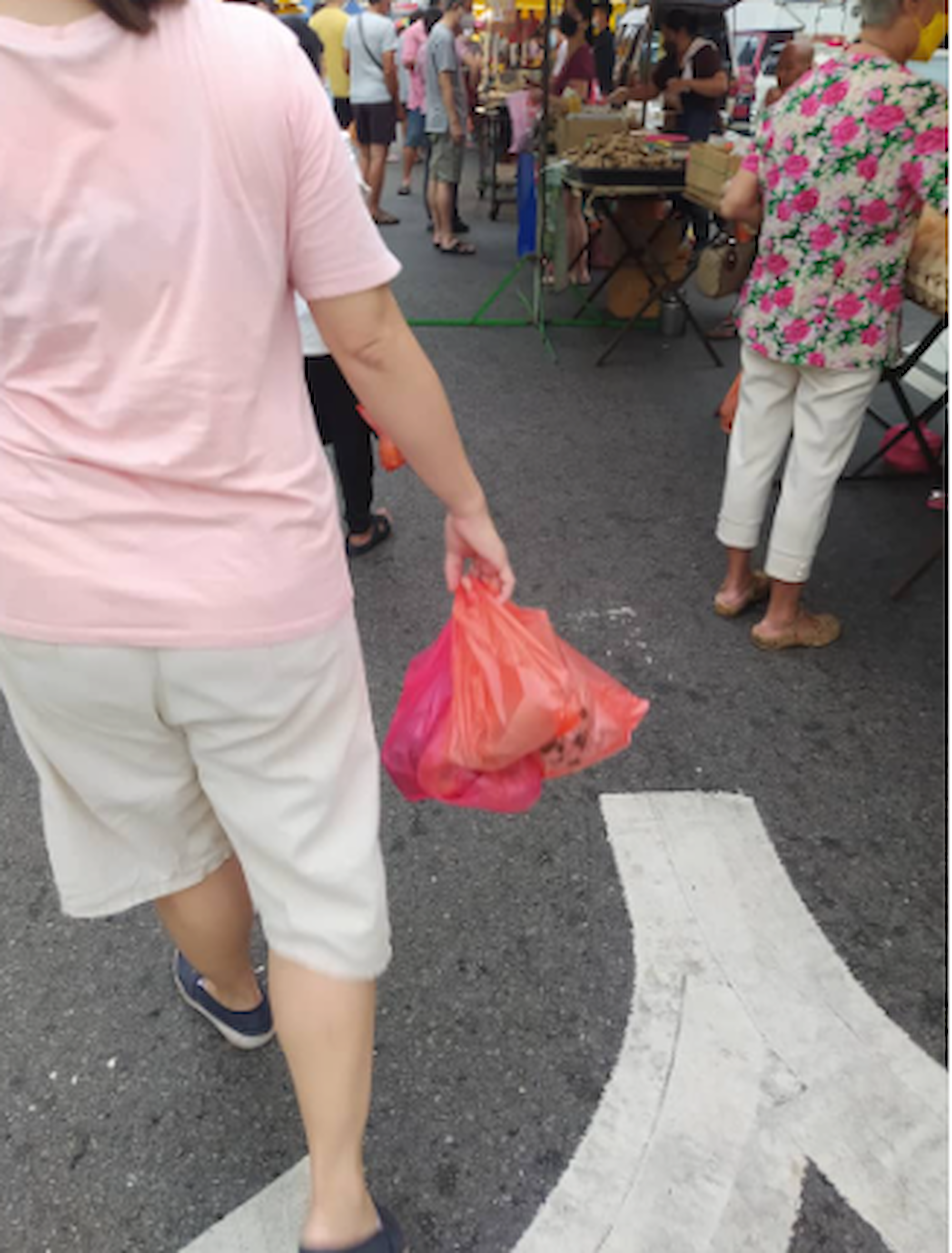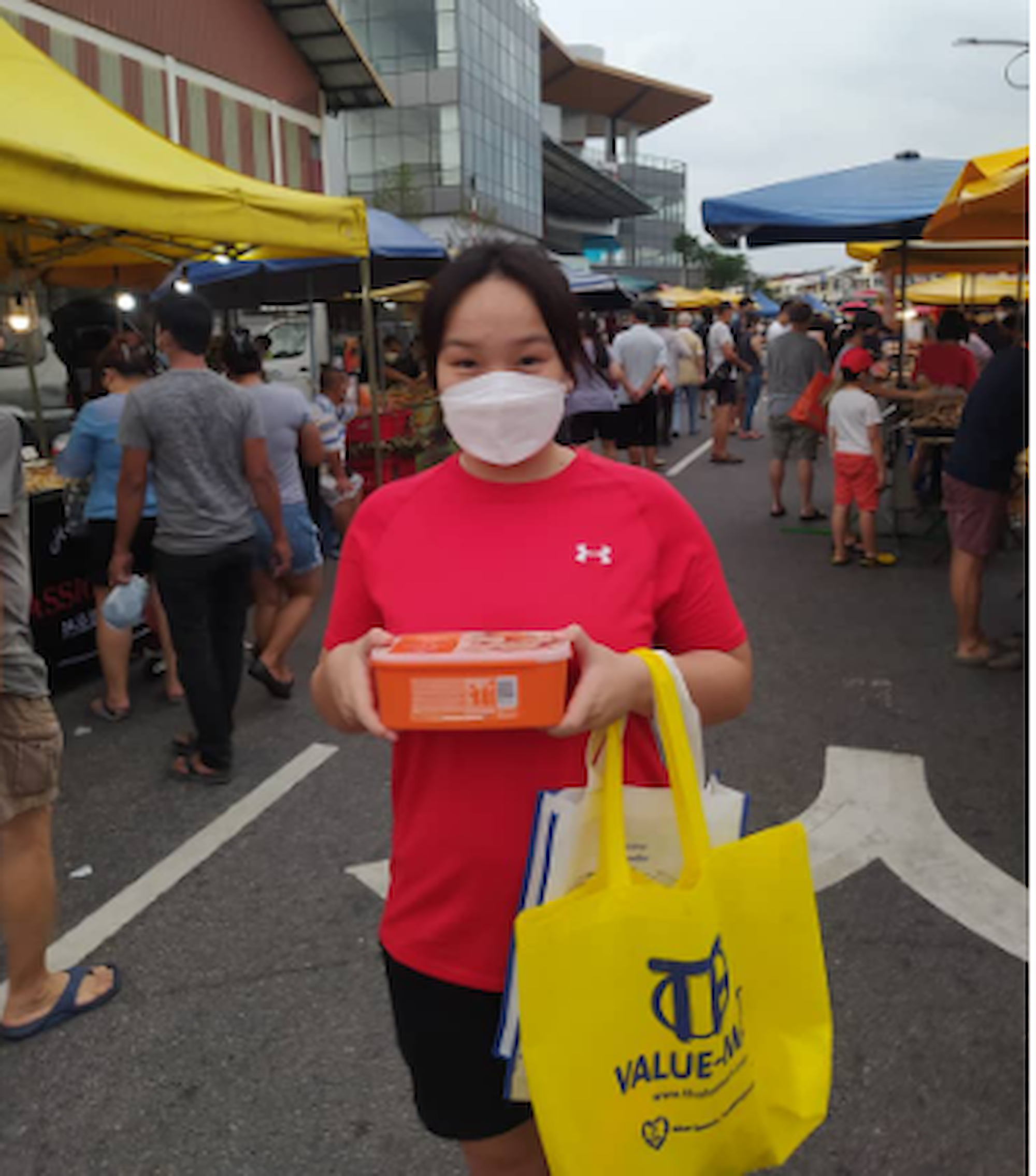YRE Competition 2023
3rd Place - Article
15-18 years old
By Wong Yu Xuan
It is a Sunday evening as I visited the night market or “Pasar Malam” at Taman Megah PJ, Selangor nearby where I reside. A wide variety of products were sold, including food, toys, and clothing, to name a few. Never-ending streams of people were moving up and down the road. The night market business has been active again after the Movement Control Order (MCO) was lifted. The traders surely will benefit from the strong economic recovery. However, when the night market is over, what’s left behind is garbage everywhere especially plastic waste. It's an annoying scene!
Though the government has taken steps to curb the usage of single-use plastic, I still see people carrying plastic bags full of their shopping items. Generally speaking, I have had several experiences of visiting the night market in an environmentally friendly way. I brought my own recycle bags and food containers from home. When I buy fruits, I make sure to use my own recycle bags to keep the fruits. All vendors and hawkers there are very welcoming towards my initiative to protect the environment. Of course, not everyone is aware that this small action matters a lot for our planet.
Garbage and plastic waste scattered everywhere after nigh market over.
Photograph by Wong Yu Wang during night market visit.
I took this opportunity to interview the fruit vendors and the food hawkers over there. It was heartening to find out that many people are bringing their own shopping bags, especially adults. They are positive towards the initiative of phasing out single-use plastics. It sparked my curiosity: Why do young people have lower awareness of reducing single use plastics? Hence, simple research on 10 of my classmates was conducted by simply asking: Will you bring your own recycle bag and container while shopping at the night market? It was revealed that 8 out of 10 of them will not bring those items because they think it is too much of a hassle to prepare and spend time cleaning it after using. Some of them also have an opinion that plastics are much lighter and more convenient.
Some of the shoppers still lack of awareness of reducing single-use plastic.
Photography by Wong Yu Xuan
Most people understand that plastic wastes are an eyesore to the community. What makes it worse is that they think that the cleaning and disposal of plastic waste is solely the responsibility of local authorities rather than each and every individual. In fact, this mentality is wrong. Every individual’s role in environmental protection is crucial and they can all share the responsibility with the government to achieve a better and more sustainable future.
What can individuals do to prevent plastic pollution?
Preventing the production of plastic waste is the most effective way to reduce its waste output. To elaborate, we can practice the 3Rs: reduce, reuse and recycle to conserve natural resources, and reduce greenhouse gas emissions to make this planet sustainable for living.
I brought my own shopping bags and containers for night market shopping.
On the other hand, we should reject single-use plastic bags by bringing our own reusable bags when we shop or bringing our own containers whenever we order take-away food. The community should maintain a greenhouse concept by using environmentally friendly products or recyclable items made from glass, wood, paper, etc.
The environmental impact of plastic waste can be reduced by plogging, an eco-friendly workout trend by picking up trash and litter while jogging. This workout is not only able to make us healthy, but it also helps to restore nature by just simply picking up the trash.
In addition, we could use virtual spaces to raise our voices by sharing plastic pollution issues on social media. Indirectly, it will help to increase public awareness as well as spark others to become more environmentally aware of this issue. As charity begins at home, every environmental protection action starts with oneself and everyone should be involved in solving this problem.
Next, what is the role of the government and responsible authorities in solving the issue of plastic pollution?
The most pragmatic measure to tackle plastic pollution is to reduce the use of plastic for food packaging, non-essential and everyday use items. The enforcement of the RM0.20 charge for each plastic bag purchased (Zen, I.S. et al 2013) is one of the effective measures to raise awareness among the community. This move is in line with Malaysia's Roadmap towards Zero Disposable Plastics 2018-2030 which aims to tackle the pollution of disposable plastics (MESTECC 2018).
In addition, Malaysia's roadmap encourages local industries to embrace biodegradable and compostable plastic alternatives. Natural sources of bioplastics are the best alternative for plastic but it is relatively expensive because of the complex process. In view of the high costs of bioplastic production, the government should support in terms of subsidies and zero taxation for sustainable raw materials and products.
Awareness is the key to tackling plastic pollution. The initiatives implemented by the government such as the “No Plastic Bag Campaign” (Zen, I.S., et al 2013) and the “No Straw Campaign” (Malaymail 2018) are effective ways to educate the public to stop the use of plastic straws, single-use plastic water bottles, and plastic bags, among others.
It is undeniable that more proactive steps need to be taken through the role of environmental education (IMPAK 2006). Environmental education must be nurtured from an early age to create awareness of the importance of protecting the environment. Thus, the national education framework must explicitly acknowledge in line with both national development and environmental sustainability.
Besides that, Malaysia is facing a marine plastic pollution issue which is found to be difficult to tackle compared to other neighboring countries such as Indonesia (Kamaruddin, H., et al 2022). In fact, the issue of marine plastic debris affects the entire world community and it requires international cooperation to resolve. Therefore, Malaysia is working hard to enhance international cooperation with Indonesia through legal approaches (Chen, H.L., et al. 2021) in regulating the management of plastic waste in solving the marine plastic pollution issue.
To recapitulate, the government’s effort in addressing plastic pollution is a positive move. However, the issue of plastic pollution wouldn’t be resolved easily unless there is a significant shift in the attitude among Malaysians. If every individual contributes a little effort, it will add up to a whole lot of good for our environment towards a sustainable future.
Bibliography:
1. Chen, H.L., Nath, T.K., Chong, S. et al. (2021). “The plastic waste problem in Malaysia: management, recycling and disposal of local and global plastic waste.” SN Appl. Retrieved from URL: https://doi.org/10.1007/s42452-021-04234-y
2. IMPAK (2006). ”Environmental Education and Awareness.” Issue 4, doe.gov.my. Retrieved from URL: https://enviro2.doe.gov.my/ekmc/wp-content/uploads/2016/08/1380091485-Impak_2006_Bil_4.pdf
3. Kamaruddin, H., Maskun, Patittingi, F.et al. (2022). “Legal Aspect of Plastic Waste Management in Indonesia and Malaysia: Addressing Marine Plastic Debris.” Sustainability 2022, 14, 6985. Retrieved from URL: https://doi.org/10.3390/su14126985
4. Malaymail (2018). ”Plastic Straw Ban Effective 2020, Ministry Clarifies.” Retrieved from URL: www.malaymail.com/news/malaysia/2018/09/22/plastic-straw-ban-effective-2020-ministry-clarifies/1675334.
5. MESTECC (2018). “Malaysia’s Roadmap towards Zero Single-Use Plastics 2018–2030.” Ministry of Energy, Science, Technology, Environment and Climate Change (MESTECC). Retrieved from URL: https://www.mestecc.gov.my/web/wp-content/uploads/2019/03/Malaysia-Roadmap-Towards-Zero-Single-Use-Plastics-2018-20302.pdf
6. Zen, I.S. Ahamad, R., Omar, W. (2013). “No plastic bag campaign day in Malaysia and the policy implication.” Environ Dev Sustain. Retrieved from URL: https://core.ac.uk/download/pdf/20364482.pdf
7. Zen, I.S., Irina, S. (2013). “No Plastic Bag Campaign Day in Malaysia and the Policy Implication.” AGRIS: International Information System for the Agricultural Science and Technology. Retrieved from URL: https://agris.fao.org/agris-search/search.do?recordID=US201400184489




